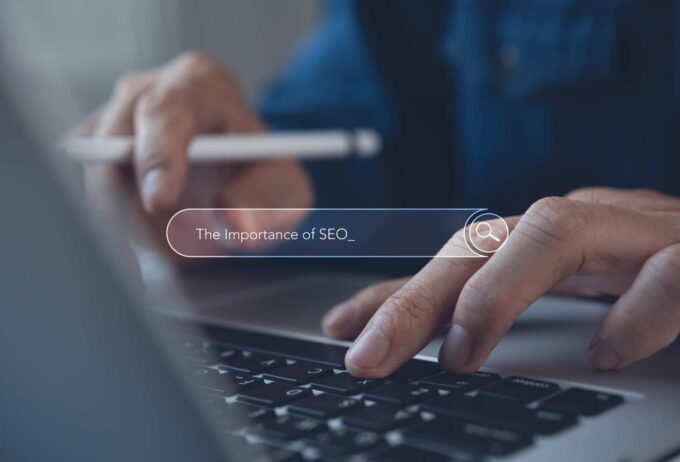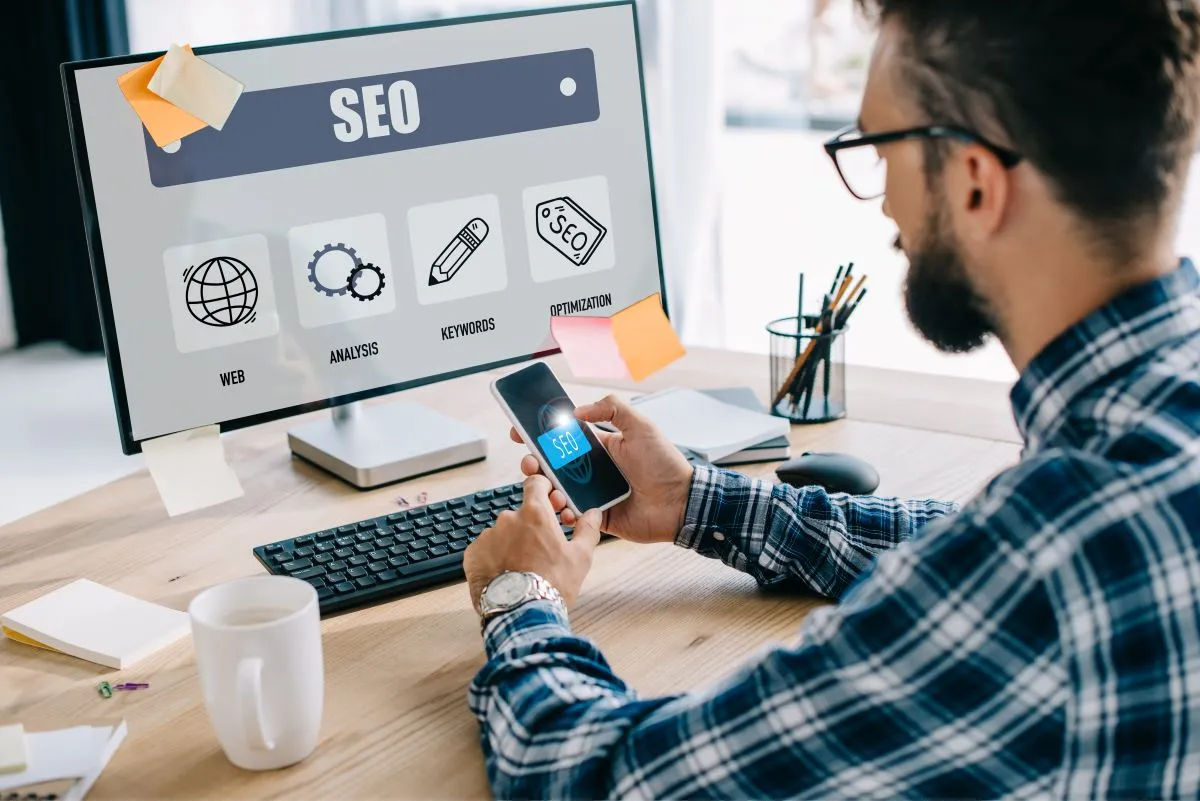Starting a web project can feel overwhelming, especially if you’re not familiar with the technical aspects of web design and development. Whether you’re launching a new business, rebranding an existing company, or simply need a refreshed online presence, working with a web design agency can make the process seamless and stress-free.
In this guide, I’ll walk you through the key steps to help you kick-start your project with confidence.
1. Define Your Goals and Vision
Before reaching out to a web design agency, it’s essential to have a clear understanding of what you want to achieve with your website. Are you looking to generate leads, sell products online, or simply provide information about your services? Knowing your goals will help the agency create a site that aligns with your business objectives.
Equally important is having a vision for how you want your site to look and feel. Do you want a modern, minimalist aesthetic, or something more colorful and bold? Gather inspiration by browsing other websites and noting features you like, such as navigation style, typography, or imagery. Having a clear vision will help the agency translate your ideas into a cohesive design.
2. Research and Select the Right Agency
Not all web design agencies are created equal, so take the time to research and find the one that’s the best fit for your needs. Look at their portfolio to see examples of their past work, especially projects similar to yours. Pay attention to the industries they’ve worked in, the styles they’re skilled in, and how well their designs have translated into functional websites.
Reviews and testimonials from previous clients can give you valuable insights into the agency’s reliability, communication, and overall quality of work. It’s also a good idea to ask for references, especially if you’re embarking on a large or complex project.

Source: americaneagle.com
3. Initial Consultation and Project Scope
Once you’ve chosen your agency, the next step is to schedule an initial consultation. This meeting is crucial for laying the foundation of your project. During this discussion, you’ll talk about your business goals, design preferences, budget, and timeline.
The agency will ask questions to clarify the project’s scope and gather all the information they need to start planning. This is also the time to discuss any specific features you want for your site—whether it’s e-commerce functionality, a blog, or integration with third-party services like booking systems or CRMs. The clearer you are about your needs upfront, the smoother the process will be.
4. Budget and Timeline Planning
Budget is one of the most important factors to consider when starting a web project. Be upfront with your agency about your budget limitations and expectations. A professional agency will help you prioritize features and functionalities to ensure you’re getting the most value without going over budget.
As for timelines, ask the agency for an estimated timeframe based on the project’s complexity. Be realistic, though—building a quality website takes time, especially if you’re looking for custom design and development. Rushing the process may compromise the quality and effectiveness of the final product.

Source: appspringtech.com
5. Collaborating on Design and Content
After the initial planning, the fun part begins—design! The agency will likely provide wireframes or mockups based on your goals and preferences. This is the stage where you’ll give feedback on the visual aspects of the site, from layout and color schemes to typography and images. Be open and collaborative, and don’t be afraid to ask for changes. After all, this site represents your brand, and you want it to be perfect.
Simultaneously, start working on the content for your website. You know your business better than anyone, so it’s essential that your content accurately reflects your brand’s voice and messaging. If writing isn’t your strength, many agencies offer copywriting services or can connect you with a content writer who will craft SEO-optimized content to engage visitors and drive traffic.
6. Development and Testing
Once the design is approved and the content is ready, the agency will move on to development. This is when they’ll build out the functionality of your site—coding the layout, creating responsive versions for mobile devices, and integrating features like contact forms, payment gateways, or booking systems.
Testing is a critical part of this phase. Before launch, the agency will test the site on various devices and browsers to ensure everything works smoothly and looks great no matter where it’s viewed. You’ll also have the opportunity to test the site yourself and flag any issues that need fixing before going live.

7. Launch and Post-Launch Support
After testing and final adjustments, it’s time for the big moment—launch! The agency will help you transition your new site from a staging environment to your live domain, ensuring a smooth, hassle-free process. But launching your site isn’t the end of the journey.
Most web design agencies offer post-launch support, which includes things like regular maintenance, updates, and security checks. This is vital to ensure your site remains functional and secure over time. Discuss ongoing support options with your agency, especially if you don’t have an in-house technical team.
8. Tracking and Optimization
Once your site is live, it’s time to monitor its performance. Analytics tools like Google Analytics can provide insights into user behavior, showing you which pages are performing well and where there’s room for improvement. The agency can help set up these tools and provide recommendations for ongoing optimization, ensuring your site continues to meet your goals long after launch.
Remember, a website is never truly “finished.” Trends evolve, user needs change, and your business will grow. Having a web design agency by your side for ongoing optimization ensures your website stays up-to-date, effective, and aligned with your business objectives.
9. Understanding the Role of a Web Design Agency
A web design agency does far more than just create a visually appealing website. They are your strategic partner in building an online platform that drives growth for your business. This includes:
- Designing user experience (UX) ─ Crafting a site layout that’s intuitive, easy to navigate, and enhances the user’s journey.
- Creating responsive designs ─ Ensuring your site looks and works perfectly on any device, from desktops to smartphones.
- Custom development ─ Implementing advanced features, like e-commerce capabilities, booking systems, or third-party integrations tailored to your needs.
- SEO optimization ─ Building your site in a way that’s optimized for search engines, helping you rank higher and attract more organic traffic.
- Ongoing maintenance ─ Providing long-term support to keep your site up-to-date, secure, and running efficiently.

Source: 1digitalagency.com
10. Why You Should Choose a Custom Website Over a Template
Many businesses are tempted to use website templates or DIY website builders because of their lower cost and faster setup. However, a custom website built by a web design agency offers several key advantages:
- Unique branding ─ A custom site is tailor-made to represent your brand’s identity, creating a unique experience for your visitors. Templates, on the other hand, are often reused by thousands of other businesses, making it harder for you to stand out.
- Flexibility ─ Templates come with limitations in terms of customization and functionality. A custom site gives you the flexibility to add features specific to your business, from advanced product filtering to integration with other tools your business relies on.
- Performance ─ Template websites are often bloated with unnecessary code, which can slow down your site. A web design agency will create a lean, efficient site that loads quickly and provides a better user experience.
- Scalability ─ As your business grows, so should your website. Custom-built sites are easier to scale and expand with new features or sections as your needs evolve.
11. The Importance of SEO from the Ground Up
One of the key reasons to work with a web design agency is their expertise in Search Engine Optimization (SEO). While many website builders claim to offer “SEO-friendly” designs, a professional agency can take it to the next level by building SEO into the foundation of your site.
- Clean code ─ A well-structured site with clean code helps search engines crawl your site more effectively, boosting your chances of ranking higher.
- Mobile optimization ─ Google places heavy emphasis on mobile-friendliness when determining rankings. An agency will ensure your site is fully optimized for mobile users.
- Fast loading times ─ Page speed is a crucial ranking factor. Agencies will optimize images, scripts, and other elements to ensure your site loads quickly.
- Optimized content ─ Agencies can also help with on-page SEO, such as creating optimized title tags, meta descriptions, and ensuring your content is structured with proper headings and keywords.

Source: impactmybiz.com
12. Collaboration is Key ─ How to Work Effectively with Your Agency
Creating a website is a collaborative process. While the web design agency brings expertise in design and development, your input is crucial to ensure the final product meets your expectations. Here are a few tips to ensure smooth collaboration:
- Be clear about your expectations ─ From the start, be clear about your goals, design preferences, and any specific functionalities you need. The more detailed you are, the easier it will be for the agency to deliver a product that meets your vision.
- Provide timely feedback ─ During the design and development process, the agency will likely send mockups or prototypes for your review. Be prompt in providing feedback and clear about what you like or want to change.
- Trust the experts ─ While your feedback is important, remember that the agency has experience in building websites that work. Be open to their suggestions, especially when it comes to usability, SEO, and performance.
- Prepare your content early ─ Content is often one of the biggest bottlenecks in the web design process. Start preparing your content—text, images, videos, etc.—early on so that your site can be populated quickly once the design is ready.
13. The Value of Long-Term Support
Your website is not a “set it and forget it” tool. It requires ongoing updates, maintenance, and improvements to stay secure, functional, and relevant. This is where the agency’s long-term support comes in.
- Security updates ─ Regular updates to software, plugins, and security patches are essential to protect your site from hackers.
- Content updates ─ As your business evolves, you’ll need to update your site with new products, services, blog posts, and more. The agency can help manage these updates efficiently.
- Performance monitoring ─ Agencies often offer ongoing monitoring services to track the performance of your site, including page load times, uptime, and traffic analytics.
- SEO adjustments ─ As search engines update their algorithms, your site’s SEO may need adjustments. Ongoing SEO services can help ensure you continue to rank well.

Source: webwonders.pk
14. The Impact of User-Centric Design
One of the hallmarks of a professional web design agency is their ability to create a user-centric design. This means putting the needs and preferences of your visitors first. A user-friendly site can result in higher engagement, longer visit durations, and increased conversions.
- Intuitive navigation ─ Visitors should be able to find the information they need quickly and easily. A good web design agency will structure your site’s navigation in a way that’s logical and straightforward.
- Clear calls to action (CTAs) ─ Whether you want users to fill out a contact form, make a purchase, or download a resource, your CTAs should be prominent and compelling.
- Accessibility ─ A professional agency will ensure your site is accessible to all users, including those with disabilities, by following web accessibility standards (such as WCAG 2.1).
Conclusion ─ The Path to Online Success Starts Here
Working with a web design agency to create a custom website is an investment in the future of your business. From achieving a unique brand identity to providing a better user experience and driving long-term growth, a professionally designed website will help your business thrive in the digital age.
By following this complete guide and partnering with the right agency, you’ll be well-equipped to take your online presence to the next level. Whether you’re starting from scratch or redesigning an existing site, a custom-built website will ensure you’re putting your best foot forward in the digital world. Don’t leave your web presence to chance—start your project with a web design agency today and watch your business grow.







